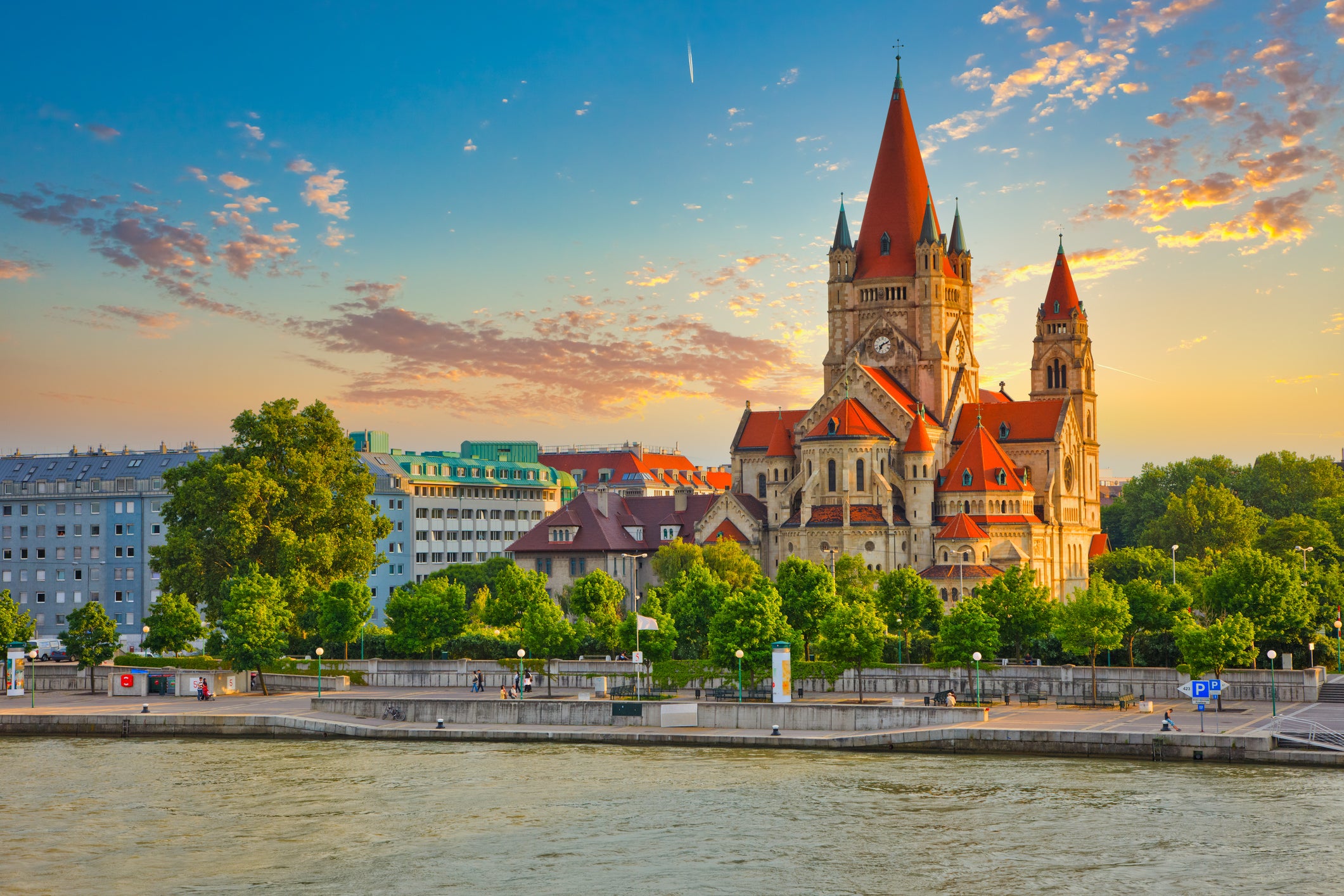We all dream of living abroad – but which cities do people actually go to?
There’s a lot of highly-rated cities for people to live and work from, but why don’t more people go there, asks Hamish McRae


We have all done it. That moment on holiday when we wonder what it would be like to live there all the time instead of just breaking the routine for a couple of weeks.
The seductive idea of starting a new life made a fortune for Peter Mayle, the London advertising executive who moved to France and wrote A Year in Provence about his experiences there. That was more than 30 years ago and the book not only sold 6 million copies, but led to a whole raft of similar stories of people who had moved aboard, given up one life and started another.
Of course not everyone could do something like that. The awkward reality of having to earn a living intrudes. But since then, and particularly since the pandemic, what was an impossible dream has, for a significant minority, become a realistic possibility. For anyone who can work from home, that home does not need to be in Britain or wherever the job is located. Home can in theory at least be anywhere. Of course this is only for people that can do most of their work online and at the right stage of their careers. But for the minority that can manage it, the choice of location is much wider than even five years ago, let alone 30.
But where? City or country? Anglophone or not? Developed world or emerging world? Time zone? When you look at the practicalities, the choice narrows. For many, remote working still means not too remote at all: a major city, or at least a place with a city in easy reach. And that is where work by the Economist Intelligence Unit (EIU) comes in handy. Every year it publishes a report, the Global Liveability Index, on which cities in the world offer the best combination of public and private services, personal safety, healthcare, education, cultural activities, transport links and so on. There is a good report on it from CNBC here.
The top 11 are Vienna, Zurich, Copenhagen, Calgary, Vancouver, Geneva, Frankfurt, Toronto and Amsterdam, with Osaka and Melbourne tying for the 10th place. So all in the developed world, and six in continental Europe, with none in the UK or US. The top-ranked US city is Atlanta, with Washington DC just behind, while in the UK, Manchester is ahead of London, which is placed a couple of pips behind Washington. At the very bottom of the league is Damascus, just below Lagos, Tripoli, Algiers and Karachi.
What should we make of this? Anyone constructing an index can tweak it to allow for the priorities of the builder and the target audience. The EIU is aiming this at companies seeking to transfer executives to different locations, so things such as access to private education and healthcare are included, whereas the availability of local jobs or risk capital is not. This is about liveability, not economic opportunity. But it is fascinating just how well these European cities rank, as well the fact that Canada has three in the top eight.
To keep up to speed with all the latest opinions and comment, sign up to our free weekly Voices Dispatches newsletter by clicking here
But would you want to live in Vienna? It is lovely to visit, clean, grand and cultured. It is lots of fun, particularly in the run-up to Christmas. But would you choose to live there? The answer is that not many Britons or Americans do. According to the British in Austria forum, there are only 11,225 UK citizens in the whole of Austria, and only a similar number of Americans.
What about Switzerland, with Zurich and Geneva in the top 10? It clearly is a bigger draw, with an estimated 40,000 UK citizens living there. The combination of high salaries and low taxation is clearly seductive – and I would add skiing – even if living costs are also high. The magnet attracts huge numbers of migrants from the rest of Europe too, for there are more than 325,000 Italian-born, 300,000 German-born, and 145,000 French-born living there. Given these numbers, I suspect it is economics and physical proximity rather than liveability that pulls expats in.
And Copenhagen? Again, a lovely city and a well-managed one. But in Denmark as a whole there are only 19,000 British citizens, a decent number given the size of the country, but tiny when compared with the numbers living in the US, about 675,000, with 600,000 in Canada and 1.3 million in Australia. As far as Europe is concerned, the big British expat communities are in Spain with more than 750,000, and France with 200,000.
So what should we make of all this? There are two quite different ways of looking at liveability. One is to look objectively at cities and societies and judge how well they are run. That’s useful, and there are many lessons from the EIU study. The other is to look at where people choose to go. And for Britons at least it is Australia, the US, Canada, Spain, and France in that order – simple as that.
Hamish McRae’s new book “The World in 2050 – How to Think About the Future” is published by Bloomsbury
Join our commenting forum
Join thought-provoking conversations, follow other Independent readers and see their replies
Comments
Bookmark popover
Removed from bookmarks